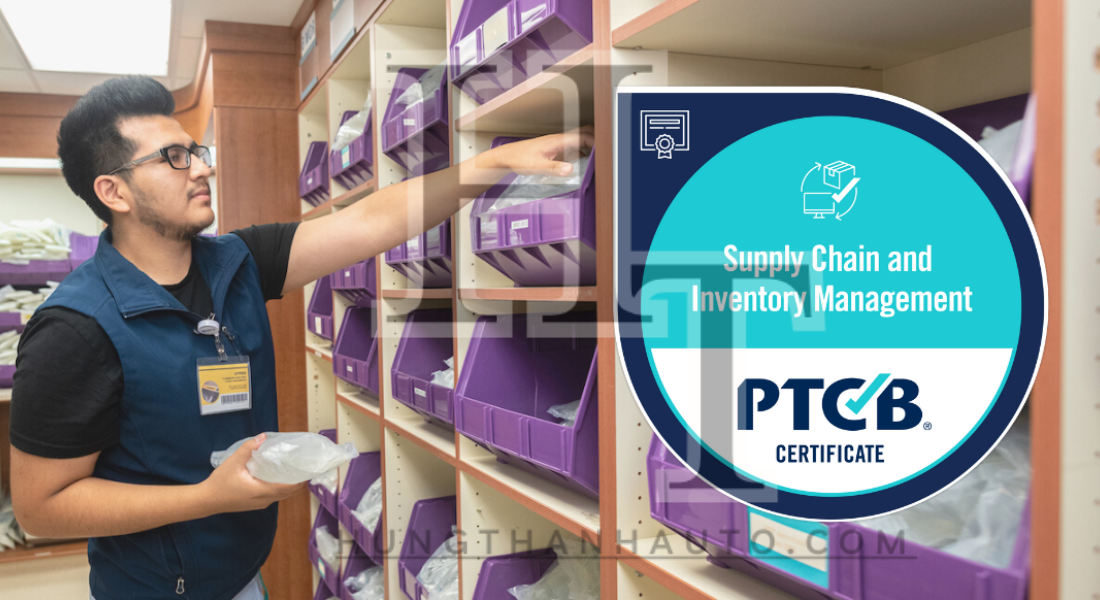The Ultimate Guide to Pharmacy Technician Certification: Steps Benefits and Career Opportunities
Introduction
In the healthcare field, pharmacy technicians play a crucial role in assisting pharmacists with a wide range of tasks, from preparing medications to managing patient records. With the growing demand for healthcare professionals, the need for certified pharmacy technicians has never been more significant. This guide provides a detailed look into pharmacy technician certification, highlighting the necessary steps to get certified, the benefits of certification, and the diverse career opportunities it opens up.
What is Pharmacy Technician Certification?
Pharmacy Technician Certification is a formal recognition of a pharmacy technician’s qualifications, demonstrating their knowledge, skills, and competence in the pharmacy field. Obtaining certification helps technicians meet national standards, ensuring they can provide accurate and efficient services in the healthcare environment. In the U.S., the Pharmacy Technician Certification Board (PTCB) is one of the leading bodies that offers certification exams, most notably the Pharmacy Technician Certification Exam (PTCE).
Why is Pharmacy Technician Certification Important?
The importance of pharmacy technician certification cannot be overstated. For both employers and patients, certification ensures that pharmacy technicians are equipped with the skills needed to safely and efficiently carry out their duties. Here’s why certification is a valuable asset:
- Increased Job Opportunities: Many employers require certified pharmacy technicians, especially in settings like hospitals, clinics, and retail pharmacies. Certification makes you a more attractive candidate in a competitive job market.
- Enhanced Job Security: Certified pharmacy technicians are seen as more reliable and capable, which can translate to higher job security and better career advancement opportunities.
- Higher Salary Potential: On average, certified pharmacy technicians tend to earn more than their non-certified counterparts. The investment in certification can pay off with higher wages and additional benefits.
- Professional Recognition: Certification serves as a mark of professionalism and dedication to the field, boosting your credibility within the healthcare industry.
Steps to Obtain Pharmacy Technician Certification
Becoming a certified pharmacy technician involves a few critical steps. Here’s an overview of the process:
1. Meet Eligibility Requirements
Before you can apply for certification, you must meet specific eligibility criteria. These requirements typically include:
- Age Requirement: You must be at least 18 years old.
- High School Diploma or Equivalent: You need a high school diploma or GED.
- Pharmacy Technician Training: Many certification boards require candidates to have completed a formal pharmacy technician training program. This training may be completed at a vocational school or community college.
- Work Experience: Some certification bodies may require a certain amount of work experience in a pharmacy setting before you can sit for the certification exam.
2. Choose Your Certification Exam
The next step is to select the certification exam that aligns with your career goals. In the U.S., the two most recognized certification programs are:
- Pharmacy Technician Certification Exam (PTCE): Administered by the Pharmacy Technician Certification Board (PTCB), this exam tests your knowledge of the essential duties and responsibilities of a pharmacy technician.
- ExCPT Exam: Offered by the National Healthcareer Association (NHA), the ExCPT exam is another option for aspiring pharmacy technicians seeking certification.
Each exam has its own focus and requirements, so it’s essential to research and choose the one that best suits your professional aspirations.
3. Study for the Exam
Preparation is key to success in the certification exam. Many candidates opt for formal study courses, which may include:
- Review Courses: Many schools and online platforms offer review courses designed to help you prepare for the certification exam. These courses often include practice tests, study materials, and guided lessons.
- Self-Study: You can also prepare by reviewing textbooks, online resources, and practice questions. The PTCB and NHA both offer study guides and materials to help you prepare for the exams.
4. Take the Certification Exam
Once you feel ready, schedule your exam. Most certification exams are computer-based and feature multiple-choice questions. The PTCE, for example, consists of 90 questions and covers areas such as medication safety, pharmacology, drug distribution, and patient safety. Ensure you have reviewed all the material and are familiar with the exam format before sitting for the test.
5. Maintain Your Certification
After passing your certification exam, it’s important to maintain your certification. Both the PTCB and NHA require certified pharmacy technicians to complete continuing education (CE) courses and renew their certification every two years. The PTCB, for example, requires 20 hours of CE, including one hour in pharmacy law and one hour in medication safety.
Benefits of Becoming a Certified Pharmacy Technician
Achieving pharmacy technician certification offers numerous benefits that can enhance your career. Below are some of the key advantages:
1. Job Growth and Stability
The healthcare sector is one of the fastest-growing industries globally, and pharmacy technicians are in high demand. As the population ages and the need for prescription medications increases, more healthcare providers are seeking certified pharmacy technicians to ensure efficient and safe medication management. According to the U.S. Bureau of Labor Statistics, employment for pharmacy technicians is expected to grow by 5% from 2021 to 2031, faster than the average for other professions.
2. Expanded Career Opportunities
Pharmacy technicians with certification can pursue a variety of career paths within the healthcare industry. Some of the potential job roles include:
- Retail Pharmacy Technician: Working in community or chain pharmacies to assist customers, manage medication inventories, and provide prescription services.
- Hospital Pharmacy Technician: Assisting pharmacists in hospitals with preparing medications for patients, managing drug therapies, and ensuring medication safety.
- Long-Term Care Pharmacy Technician: Specializing in the delivery of medications to nursing homes or long-term care facilities.
- Pharmacy Technician Instructor: Teaching aspiring pharmacy technicians at vocational schools, colleges, or online platforms.
3. Personal and Professional Growth
Certification in pharmacy technology offers a clear path for professional growth. As a certified pharmacy technician, you’ll have the opportunity to advance to supervisory roles, specialize in areas like oncology or sterile compounding, or pursue further education in pharmacy or healthcare administration. Certification demonstrates a commitment to learning and professional development, which can help you stand out to employers and colleagues.
4. Networking Opportunities
Certification often opens doors to networking opportunities within the pharmacy and healthcare community. Certified pharmacy technicians can join professional organizations like the American Pharmacists Association (APhA) or the Pharmacy Technician Certification Board (PTCB), allowing them to connect with other professionals, access resources, and stay informed about industry trends and innovations.
Career Opportunities for Certified Pharmacy Technicians
With pharmacy technician certification, you have the opportunity to explore a variety of career paths. Some of the most common career opportunities include:
- Retail Pharmacy Technician: Many pharmacy technicians work in retail pharmacies, assisting customers, filling prescriptions, and managing inventory.
- Hospital Pharmacy Technician: In hospitals, pharmacy technicians assist pharmacists in preparing medications for patients, performing drug safety checks, and ensuring compliance with hospital protocols.
- Pharmaceutical Manufacturing Technician: Certified pharmacy technicians can work in pharmaceutical companies, ensuring the production of high-quality medications and overseeing drug development processes.
- Clinical Pharmacy Technician: Clinical pharmacy technicians work closely with healthcare providers in settings such as outpatient clinics, helping with patient care and medication management.
Conclusion
Pharmacy Technician Certification is a powerful tool for career advancement in the healthcare industry. With a clear path to certification, the numerous benefits it offers, and the wide range of career opportunities available, it’s no surprise that more and more individuals are pursuing this certification. By completing the necessary steps and committing to continuous learning, you can position yourself for a successful and rewarding career as a pharmacy technician.




